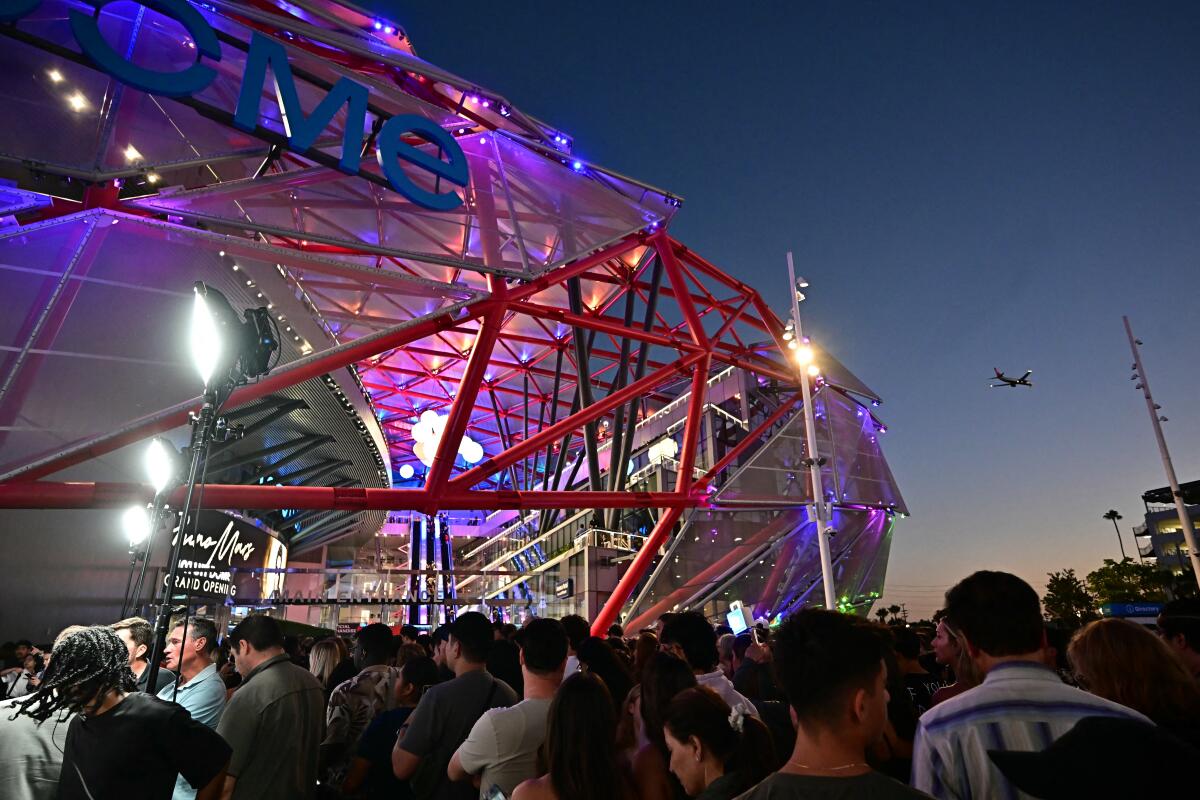Editorial: The Clippers’ arena may be allowed to serve alcohol till 4 a.m. Why not other bars and restaurants?

- Share via
Year after year, California lawmakers have shot down proposals to let bars, restaurants and nightclubs sell alcohol to their patrons after 2 a.m.
Proponents of loosening the state’s last-call laws have tried almost every version possible. First they proposed extending last call to 4 a.m., but only in cities that OKd later service. Then they limited the proposal to 10 cities for five years. Then seven cities. Then three cities, with service to 4 a.m. on the weekends. This year, Assemblymember Matt Haney (D-San Francisco) pulled his bill to let licensed establishments apply for permission to sell alcohol until 4 a.m. on the weekends before the first hearing.
But the steadfast opposition melted away for a proposal to extend last call for a select group of drinkers: VIP suite holders at Inglewood’s new Intuit Dome arena.
London has pubs. Munich has beer halls. Houston has outdoor honky-tonks. Denver has brewpubs.
Last week, the Senate quietly approved Assembly Bill 3206 that would allow alcohol to be served until 4 a.m. to dues-paying members of private suites and their guests inside the new $2-billion indoor arena, which is home to the Clippers and will host concerts and other events. The suites have a maximum capacity of 100 people.
The bill was sponsored by Murphy’s Bowl, which developed the arena and is owned by Steve Ballmer, the former chief executive of Microsoft and owner of the Clippers. It was written by Assemblymember Tina McKinnor (D-Hawthorne) and backed by the city of Inglewood, which would have to report on the effects of the alcohol service extension every year until 2030, when it sunsets. The bill has gone to Gov. Gavin Newsom.
For the fourth time since 2013, state Sen.
Does this mean that California lawmakers are finally loosening up about last call? Let’s hope so. The editorial board supported a 2017 bill to give cities and counties more authority to set rules on closing times. There’s no firm science to support the state’s rigid adherence to the 2 a.m. cutoff. After the 21st Amendment ended the national prohibition on alcohol, states were allowed to set their own laws governing its sale and distribution.
California adopted its last-call law in 1935, dictating that alcohol sales stop from 2 a.m. to 6 a.m. So did Colorado, Iowa, Texas and about two dozen other states. Indiana and Tennessee picked 3 a.m., while Alaska chose 5 a.m. Nevada has no state limits at all on when alcohol can be sold. Many states give cities and counties the flexibility to set their own rules on alcohol sales, which is why establishments in New York City, Chicago and Louisville can pour until 4 a.m. while neighboring cities cut off customers at 2 a.m.
Echoing Nancy Reagan’s “Just say no,” the former president told Fox News that he never had trouble with intoxicating substances because he never tried them.
There are cities in California, such as Los Angeles, that have thriving music and nightlife scenes that have to compete for investment and tourism with the likes of New York City, Las Vegas and other late-night cities. Why not give local governments the latitude to allow responsible establishments in appropriate neighborhoods to stay open later? That would help create a fun, bustling, vibrant, big-city atmosphere attractive to younger people and tourists — while also generating tax revenue, creating jobs and increasing the earnings of small businesses, rideshare and taxi drivers.
Sure, a bill that provides a last-call carve-out for one billion-dollar venue serving high-end customers is probably not the reform small business advocates would have preferred. But the Intuit Dome may finally persuade reticent lawmakers that it’s OK to let cities stay open later.
More to Read
A cure for the common opinion
Get thought-provoking perspectives with our weekly newsletter.
You may occasionally receive promotional content from the Los Angeles Times.











